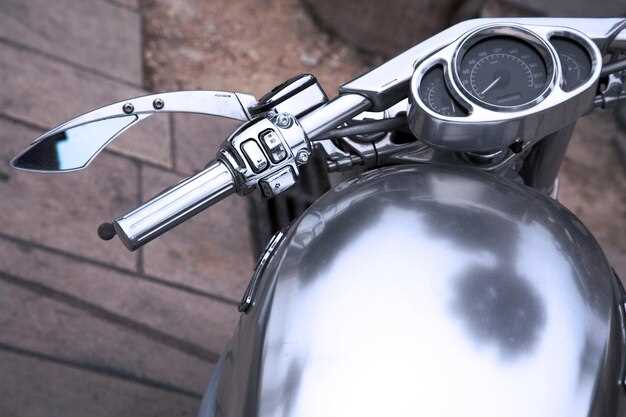
Building custom motorcycles involves not only a passion for creativity and engineering but also navigating through a complex legal landscape. The law surrounding custom motorcycles can vary significantly by jurisdiction and may affect everything from the design process to the final registration of the bike. Understanding these legal aspects is crucial for builders, as failure to comply with regulations can lead to costly penalties or, worse, the inability to legally operate the motorcycle.
One of the primary legal considerations when constructing a custom motorcycle is ensuring that it adheres to safety and emissions standards. Depending on the region, this may require the builder to incorporate specific components or systems that meet custom vehicle regulations. Additionally, local DMV or motor vehicle departments often have distinct guidelines regarding the titling, registration, and inspections for custom builds, all of which must be strictly followed to avoid potential legal issues.
Moreover, intellectual property rights can come into play when using proprietary designs or components from other manufacturers in a custom motorcycle. Builders must be aware of patent laws and licensing agreements to avoid infringement, ensuring that their creativity does not cross into legally questionable territory. As the market for custom motorcycles continues to grow, staying informed about these legal parameters becomes increasingly vital for both amateur builders and professional custom shops alike.
Understanding Custom Motorcycle Regulations in Your State

When building a custom motorcycle, it’s crucial to understand that regulations may vary significantly from state to state. Each state has its own set of laws and guidelines regarding the construction, registration, and operation of custom motorcycles. Properly navigating these regulations can ensure compliance and avoid potential legal issues.
The first step in understanding your state’s regulations is to research the specific requirements for custom motorcycle registration. Many states require custom motorcycles to undergo an inspection process to confirm that they meet safety and emission standards. This inspection may involve verifying the motorcycle’s components, including the frame, engine, and exhaust system.
Documentation is another essential aspect of the registration process. Builders are often required to provide proof of ownership for all major components, including receipts for the frame and engine. Additionally, a custom motorcycle may need a title, which further authenticates that the vehicle is legally recognized and can be registered with the state’s Department of Motor Vehicles (DMV).
Additionally, it’s recommended to familiarize yourself with the unique definitions and classifications that your state may have for custom motorcycles. States may categorize custom builds differently based on factors such as engine displacement or styling. Understanding these classifications will be beneficial when applying for registration and in matters of insurance.
Furthermore, it’s essential to stay informed about any changes in legislation that could impact custom motorcycle regulations. This can include alterations to safety requirements, emissions regulations, and changes in the registration process. Engaging with local motorcycle clubs or online forums can provide insights and updates that may affect custom builders.
In summary, being well-versed in your state’s custom motorcycle regulations is vital for anyone considering building a motorcycle from scratch. From the registration and inspection process to documentation and legal classifications, understanding these factors will pave the way for a smoother and compliant custom motorcycle experience.
Inspections and Certifications: Ensuring Compliance for Custom Builds

When constructing a custom motorcycle, compliance with legal standards is essential for both safety and registration. Inspections and certifications ensure that the build adheres to local and national regulations, including emissions, safety, and roadworthiness. Each state may have specific requirements that must be fulfilled before the custom motorcycle can be legally registered for use on public roads.
Typically, custom builds must undergo a series of inspections to evaluate components such as brakes, lights, and frame integrity. These inspections are often conducted by authorized agencies or certified mechanics with expertise in motorcycle compliance. It is vital for builders to maintain thorough documentation of all components and modifications, as this information is crucial during the inspection process.
In addition to safety inspections, custom motorcycles may require certification from recognized organizations to verify compliance with specific standards. For example, obtaining a Certificate of Operation or an emissions certification may be necessary, depending on the motorcycle’s engine type and modifications. Builders should remain informed about the certifications required in their jurisdiction to avoid potential legal issues.
Furthermore, some regions may have programs in place for the inspection of custom builds before they are registered. Participating in these programs not only guarantees compliance but also can enhance the motorcycle’s resale value by demonstrating that it has been professionally inspected and certified. The process may involve fees, which are an important consideration for builders budgeting their custom projects.
Ultimately, thorough inspections and necessary certifications are crucial steps in ensuring that custom motorcycles are safe to ride and legally recognized. Awareness of regulations and proactive engagement with the inspection process can save builders time and avoid complications down the line, making it a vital aspect of building custom motorcycles.
Navigating the Registration Process for Custom Motorcycles
Registering a custom motorcycle involves several legal considerations that vary by jurisdiction. Understanding these legal requirements is essential for ensuring compliance and avoiding penalties. The registration process typically begins with the collection of necessary documentation, including proof of ownership, receipts for parts used, and any modifications made.
Each state has its own laws regarding the classification of custom motorcycles. Some jurisdictions may categorize a custom motorcycle as a rebuilt or reconstructed vehicle, while others recognize it as a unique model. This classification can significantly affect the registration process and the requirements that must be met. It’s crucial to consult local laws to determine how your custom build will be classified.
When submitting the registration application, include a detailed description of the motorcycle, including information about the frame, engine, and any custom modifications. Some states require inspections by licensed officials to verify that the custom motorcycle meets safety and emissions standards. Ensuring that your motorcycle adheres to these standards is vital for a smooth registration process.
Additionally, be prepared to pay any associated fees, which can vary widely depending on the state and the nature of the modifications. If your custom motorcycle is built from parts not previously registered, you may need to undergo a more extensive process, including obtaining a Vehicle Identification Number (VIN) from your state’s motor vehicle agency.
Finally, it’s advisable to keep meticulous records of all documents and correspondence related to your custom motorcycle. This can be invaluable in the event of any disputes or questions regarding the legal status of your vehicle. By navigating the registration process with a clear understanding of the relevant laws, you can ensure that your custom motorcycle is legally compliant and ready for the road.
